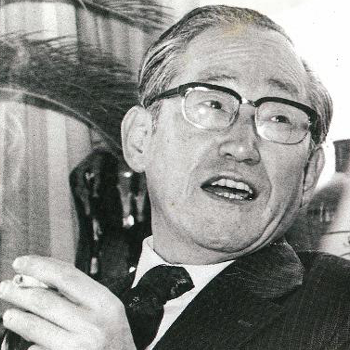An outstanding figure in Korean journalism, Choi Suk-Chae was a staunch defender of a free press and demonstrated great courage in opposing all forms of injustice on frequent occasions during his long career.
Born November 21, 1917, in Boeun, North Chung-Chong Province, Korea, Choi began his career in journalism as a magazine reporter in 1942, then worked successively as managing editor, editorial writer and editor-in-chief of the daily newspaper Maeil in Tae-gu.
On September 13, 1955, when he was editor-in-chief of Maeil, he criticised the government in his article, “Don’t Capitalise on Students for Political Gains.” As a result of this article targeting corrupt politicians in the Democratic Party for forcing students to applaud them during public addresses, thugs stormed Maeil’s offices and Choi was arrested by the police and detained for 30 days. He was later ruled innocent of any wrongdoing by the Supreme Court.
In 1960, Choi joined the national daily Chosun Ilbo and had to write his articles and columns unsigned for fear of government repression. In response to irregularities and fraud in the government, Choi wrote “Let’s Stand Up Against the Government.” The article incited student protests in April 1960.
After the 1961 military coup by General Park Chung-hee, Choi was asked to make a statement over the radio that supported the regime and to write articles in support of General Park, but he refused. In March 1963, when hundreds of officers and soldiers who supported the authoritarian rule of General Park took to the streets and staged demonstrations against the transition of power from military to civilian hands, another Choi article, “Rebuke Officers with No Common Sense,” drew widespread attention.
However, perhaps the most important incident in Choi’s long career — and one that made him a legendary figure in Korean journalism — took place in 1964, when he was vice chairman of the Korean Newspaper Editors’ Association. When the Park regime tried to pass a code of ethics for the press as a means of silencing the media, Choi criticised the government and condemned the bill at every stage. When the regime finally gave up its intention, he recalled later that it was the most fulfilling moment in his life.
Choi was offered many government positions, including ministerial posts, and was asked to join the National Assembly ruling party, but repeatedly turned them down in order to continue his work as a journalist.
Choi, who was appointed editor-in-chief of the Chosun Ilbo in 1965, also served as chairman of Munhwa Broadcasting Company, honorary chairman of Maeil, and chairman of the Korean IPI National Committee. He died on April 15, 1991, aged 74, but will be remembered by the Korean public for his fearless and uncompromising articles, and for the inspiration he provided other journalists during the process of democratisation in South Korea in the late 1980s.
